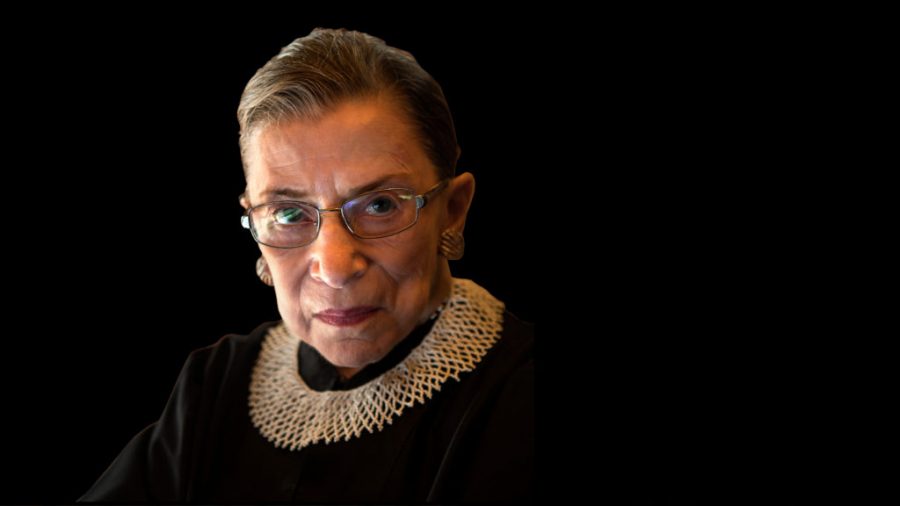Supreme Hypocrisy: Republicans Change the Rules After Ginsberg’s Death
The late Supreme Court Justice Ruth Bader Ginsberg was one of the strongest voices in American history for women’s rights. Unfortunately, her death this past Friday from complications related to pancreatic cancer could mean the end to a fair Supreme Court.
Ginsberg’s dying wish, expressed to her granddaughter just days before her death, was that she would not be replaced until after the presidential election.
The precedent of not seating a new Supreme Court Justice in a presidential election year was set by the current Republican Senate leader Mitch McConnell in 2016.
In February of that year, ten months before the presidential election of 2016, conservative justice Antonin Scalia died unexpectedly, leaving a vacancy on the court.
President Obama nominated Judge Merrick Garland for the open seat. However, Garland was refused a hearing or a vote by the Republican-controlled Senate.
The Republican’s reasoning for holding the seat open for almost a year was that they did not think a new Supreme Court justice should be confirmed in a Presidential election year. They argued that the voters should have the final say in who would get to nominate a new justice.
Now today, less than 50 days before the 2020 presidential election, these same Republican politicians have turned their heels and said that it is absolutely okay for President Trump to nominate and confirm a third supreme court justice.
In 2016, Republican Senator Lindsey Graham said this about the president the Senate set by refusing to hold hearings or vote on President Obama’s 2016 pick:
“I want you to use my words against me. If there’s a Republican president in 2016 and a vacancy occurs in the last year of the first term, you can say Lindsey Graham said let’s let the next president, whoever it might be, make that nomination,” said Graham.
Yet yesterday, in an act of complete hypocrisy, Graham said that he would vote to confirm a Trump-appointed justice before the election.
Ginsberg’s open seat has lit controversy over what should be allowed. Democratic activists have been energized. In the 24 hours after Ginsberg’s death over 100 million dollars was donated to various Democratic politicians via Act Blue.
The fight over her successor will be intense and will only serve to further divide the county.
Ginsberg, whose life and career were spent fighting sexism and discrimination, was one of only nine women in her 500 person class at Harvard Law School, and was chastised by a professor for taking a “man’s spot” at the prestigious school. She later became the first female member of the Harvard Law Review.
Nonetheless, she was still rejected for a clerkship by Supreme Court Justice Felix Frankfurter because of her gender and had a difficult time finding work after graduating from law school, even though she had finished first in her class.
She worked in academia in the 1960s, teaching at Rudgers and Columbia Law School. She also founded the Women’s Rights Project which is still in a major voice for women’s issues today.
Ginsburg was appointed to the U.S. Court of Appeals for the District of Columbia in 1980 by President Jimmy Carter. She served on the appeals court for thirteen years until 1993, when Bill Clinton appointed her to the Supreme Court of the United States. She was confirmed by the Senate by a vote of 96-3.
Ginsberg always had a strong voice on equality and freedom, and a new Supreme Court Justice regardless of what party they come from should be decided by whoever wins the 2020 presidential election.
Just as the Republicans did in 2016.

Mario is a Senior at Tyrone Area High school. If you were to see Mario in the hallway you would first notice his messy hair which wouldn't look out of...









Anonymous • Oct 27, 2020 at 2:49 pm
Sadly this article is still relevant, especially as of yesterday. On the 26th of October, Amy Coney Barrett was sworn in as a supreme court justice. It’s not only hypocritical but disrespectful, as I’m sure many people would agree. Justice RBG said she wished for the seat to be filled after the presidential election. While there isn’t anything about a ‘dying wish’ in the constitution, it’s out of pure respect as well to respect someone’s dying wish.
Justice Ginsburg was a pioneer for women’s rights. May she live on in the afterworld.
Annonymous • Oct 1, 2020 at 5:08 pm
What do the republicans owe the democrats? There is no “dying wish” clause in the constitution. #FillTheSeat
anonymous • Sep 25, 2020 at 5:28 pm
As a republican, I do agree rep. Congressmen are being hypocrites. However, I honestly believe that democrats would do the exact same thing.